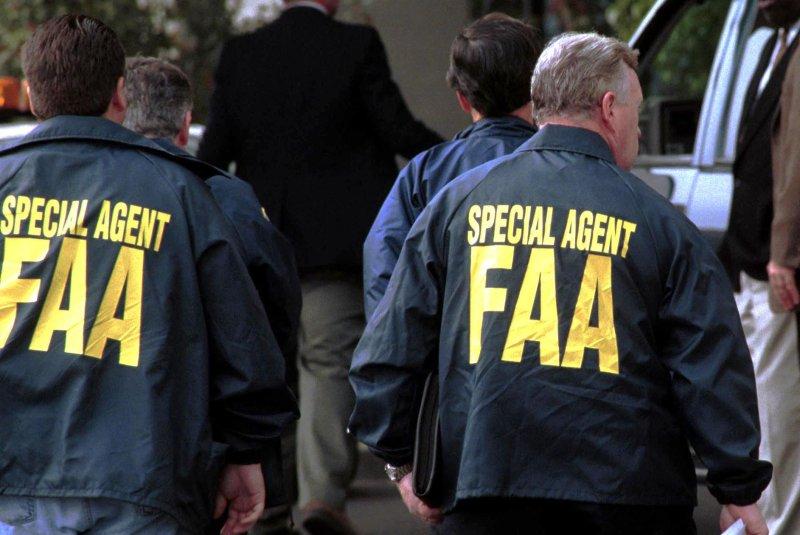The Las Vegas aviation community is facing scrutiny as an airport administrator comes under review for a potential conflict of interest. Authorities have launched an inquiry into allegations that the official may have engaged in activities compromising the integrity of airport operations. This development raises questions about transparency and ethical standards within the management of one of Nevada’s busiest transportation hubs. Further details are emerging as the review progresses.
Las Vegas Aviation Administrator Faces Scrutiny Over Conflict of Interest Allegations
The administrator of Las Vegas’ key aviation sector is currently under investigation following allegations of a potential conflict of interest that could undermine public trust. Authorities are scrutinizing reported connections between the official’s personal investments and certain contracts awarded by the aviation department. This development has prompted city officials to call for greater transparency and a thorough review of the administrator’s financial disclosures.
Key concerns raised include:
- Potential favoritism in awarding service contracts to firms linked to the administrator.
- Lack of disclosure regarding private business interests.
- Possible violations of municipal ethics regulations.
| Investigation Areas | Status | Next Steps |
|---|---|---|
| Financial Disclosures | Under Review | Audit by Ethics Committee |
| Contract Awards | Investigation Ongoing | Interviews with vendors |
| Compliance with City Codes | Pending | Legal Review |
Impact on Airport Operations and Public Trust Examined
Airport operations have encountered subtle disruptions as the ongoing review casts a shadow over key decision-making processes. Sources indicate delays in procurement approvals and hesitations in contract finalizations, resulting in a cautious pause among various departments. These operational slowdowns raise concerns about the efficiency and responsiveness of the Las Vegas aviation system during a critical recovery phase for air travel.
Public confidence, a cornerstone for the legitimacy of any civic institution, now faces important scrutiny. Community stakeholders emphasize the need for transparent accountability measures to restore faith. Key public concerns include:
- The integrity of airport leadership and potential influence over vendor selections.
- The risk of compromised safety oversight linked to conflicts of interest.
- The impact on future funding and partnerships contingent on public perception.
| Area | Impact Level | Community Concern |
|---|---|---|
| Operational Efficiency | Moderate | Project delays, cautious budgeting |
| Public Trust | High | Transparency, ethical leadership |
| Safety Oversight | Low-Moderate | Protocol adherence concerns |
Legal Experts Weigh In on Potential Violations and Consequences
Legal analysts indicate that if the allegations hold true, the administrator could face scrutiny under several regulatory statutes designed to prevent conflicts of interest within public service roles.Key areas of concern include:
- The violation of ethical standards outlined in federal aviation policies.
- Potential breaches of state conflict of interest laws applicable to public officials.
- Undisclosed financial interests that may have influenced official decision-making processes.
Consequences for confirmed violations could range from administrative penalties to more severe disciplinary actions. The table below summarizes possible repercussions based on the severity of the findings:
| Violation Severity | Potential Consequences |
|---|---|
| Minor procedural lapse | Formal warning, retraining |
| Moderate ethical breach | Suspension, fines |
| Major conflict of interest | Termination, legal prosecution |
Recommendations for Strengthening Oversight and Preventing Future Conflicts
To enhance transparency and restore public trust, institutions must establish clear protocols that identify and mitigate conflicts of interest before they escalate.This includes mandatory disclosure requirements for all aviation administrators concerning their business dealings and relationships with industry stakeholders. Additionally, regular ethics training should be institutionalized to ensure all employees are aware of compliance standards and the consequences of breaches.
- Independent oversight committees to monitor administrators’ activities with authority to conduct audits and investigations.
- Mandatory rotation policies for officials in sensitive positions to prevent long-term entanglements.
- Whistleblower protections to encourage internal reporting without fear of retaliation.
| Measure | Purpose | Impact |
|---|---|---|
| Disclosure Policies | Identify potential conflicts | Early detection |
| Ethics Training | Educate staff on standards | Behavioral compliance |
| Oversight Committees | Monitor administrator conduct | Increased accountability |
Furthermore, fostering a culture of accountability demands that investigations into alleged conflicts be conducted swiftly and transparently, with findings made publicly available unless confidentiality is required. Strengthening the legal framework to impose penalties for ethical violations will serve as a deterrent. Airports and aviation bodies should actively engage with community stakeholders and advocacy groups to maintain an open dialog, ensuring policies reflect the interests of the public rather than private gain.
In Summary
As the investigation into the Las Vegas aviation administrator’s alleged conflict of interest unfolds,stakeholders and the public alike await further details. The outcome of the review could have significant implications for airport operations and governance transparency in the region. Authorities have pledged to conduct a thorough and impartial examination to uphold the integrity of aviation oversight in Las Vegas. Updates will be provided as the situation develops.










